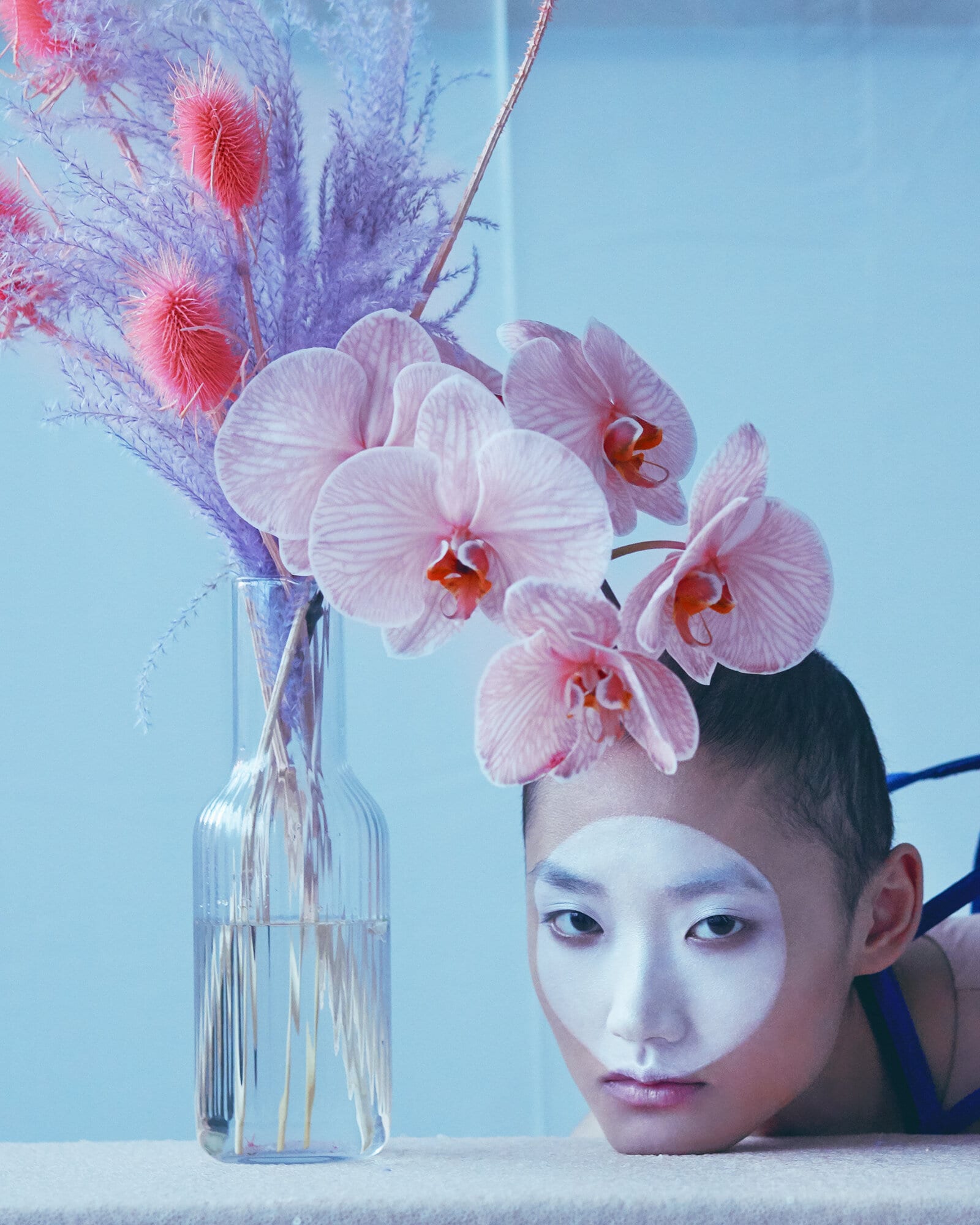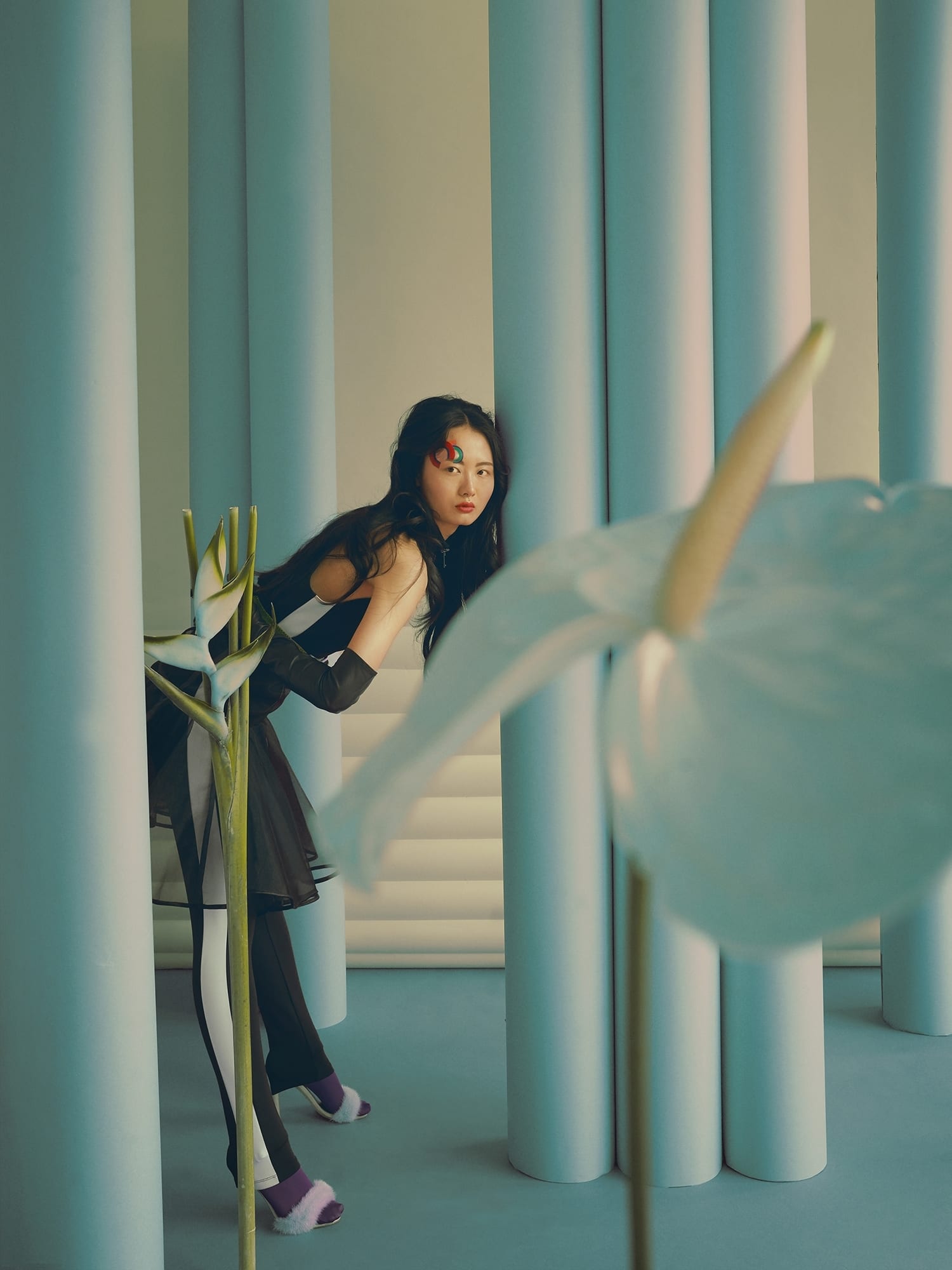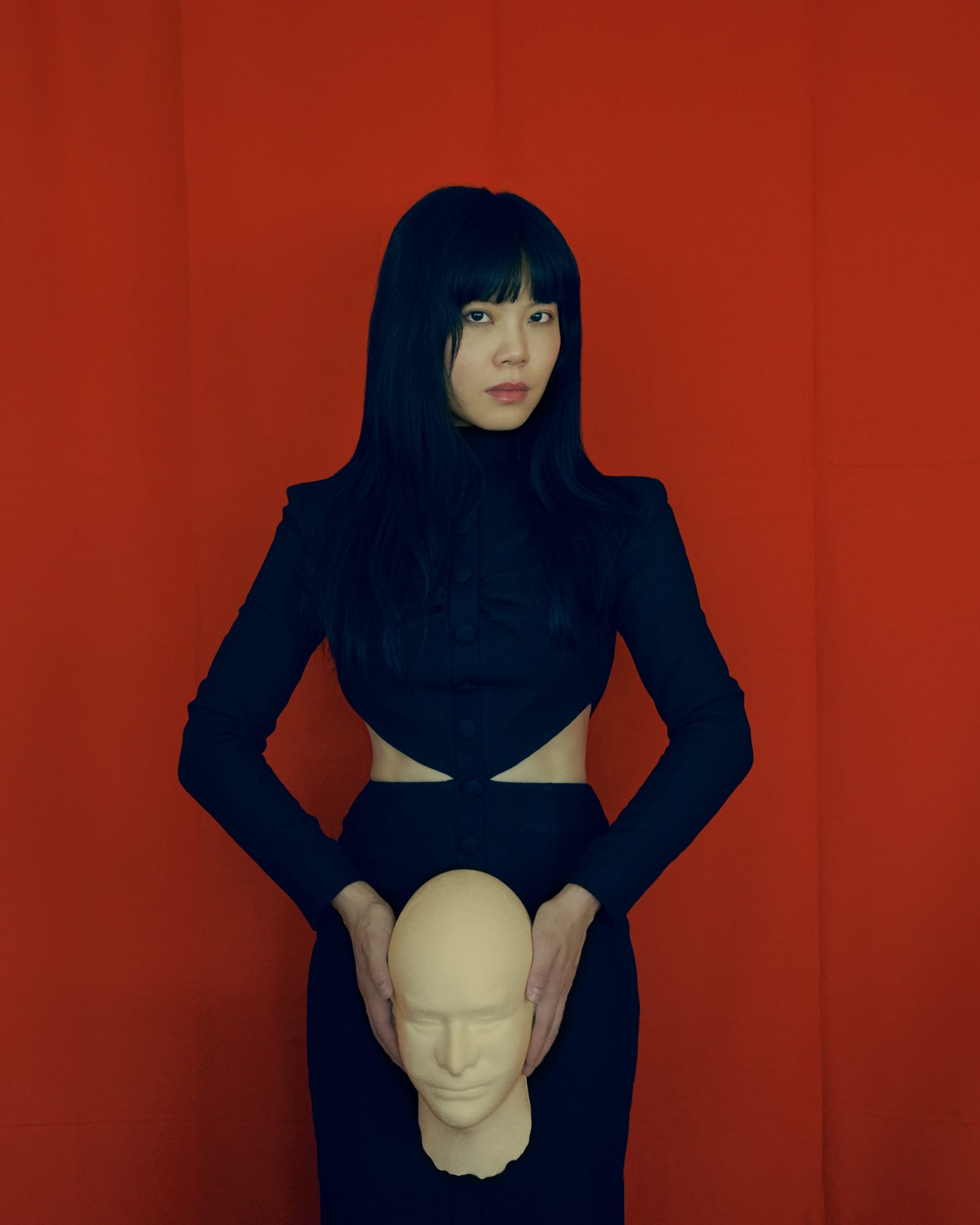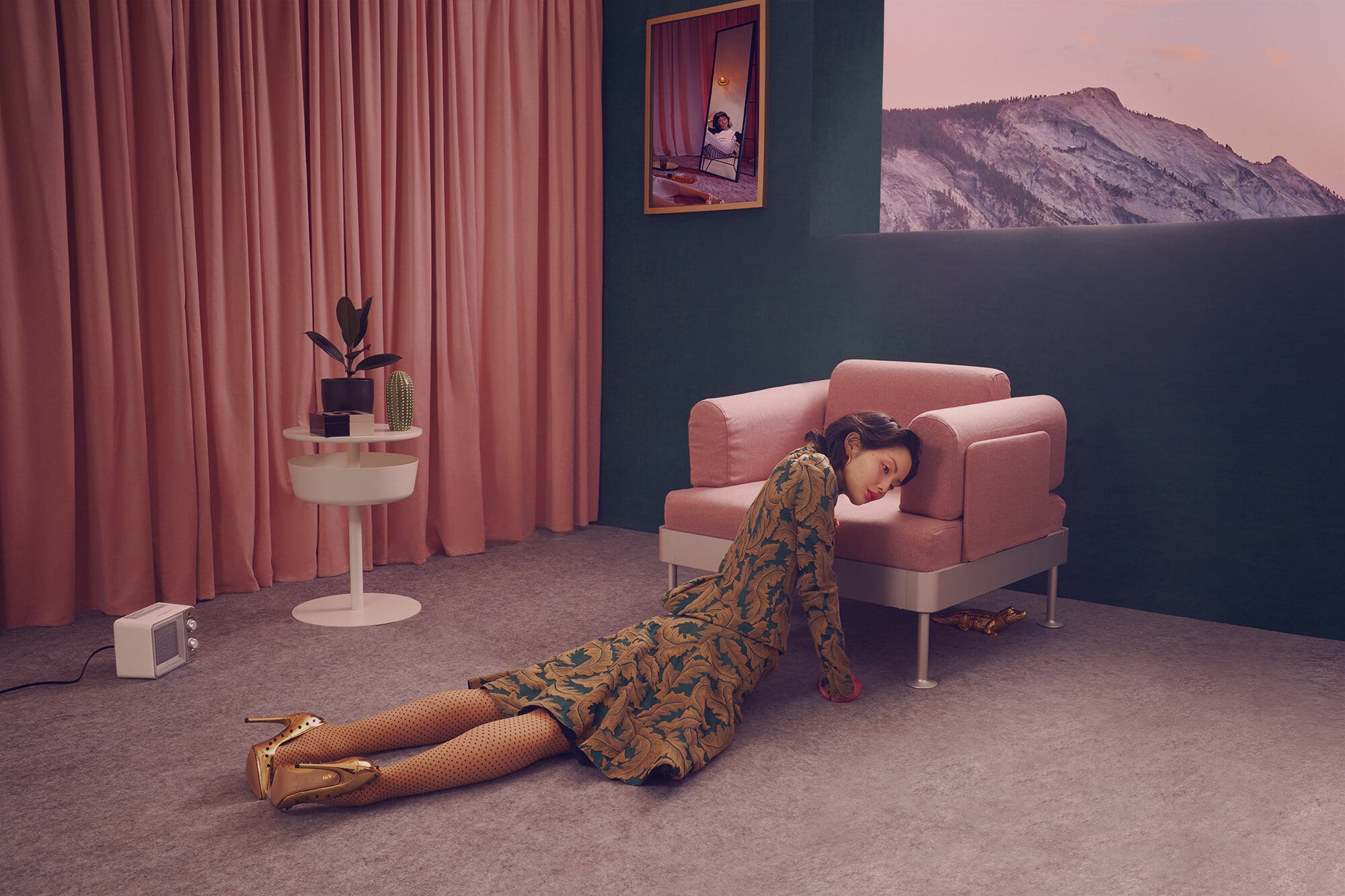In collaboration with Direct Digital – the leading international photographic equipment rental facility – 1854 Media introduces Industry Insights, a series which delves into the ins and outs of the commercial photography industry
“If I only shoot what’s on trend now, my career will be over in five years. But I’m playing a long-game.” Chinese-American photographer Michelle Watt’s whimsical, surrealist style draws outside of the lines of today’s commercial market. Here, she discusses the importance of staying true to your voice — and why it’s time for a new era of photography.
Unpacking the portfolio of Michelle Watt is like opening a door to an alternate universe. Strange, fantastical worlds unfurl in every shot, her meticulously staged compositions bursting with opulent colour and infinite detail; rich fabrics and piercing eyes. “I call them tableau,” she says — French for ‘living picture’, and a genre of theatrical visual art in which still models or actors represent a scene from a story or history.
To date, Watt’s commercial client list includes Cadillac, The North Face and LG, along with editorial commissions from The New York Times, USA Today and Vogue Italia. But her ten years in the industry have been an ongoing, and at times fraught, process of both finding and staying true to her voice. Mesmerised by puzzles and grand paintings as a child — where small, intricate pieces and paint strokes assemble to create something big and profound — “I knew the kind of pictures I wanted to create,” she says. “I just wasn’t sure which commercial field they would survive in, or where I could apply my style. It’s very different to a lot of commercial photography.”
Against the current commercial landscape, a style like Watt’s draws outside of the lines. In the last decade, the meteoric rise of camera phones and social media has paved the way for a new kind of popular photography: simple, soft, authentic, unpolished (hence the resurgence of film). Instagram quickly became the democratic platform for artists without traditional networks or expensive training, and their raw aesthetic — often used to communicate social narratives or statements — began to dominate our newsfeeds. It was only a matter of time before brands caught on, as part of a wider movement to sell themselves differently: to move away from more traditional, direct means of advertising, and mould campaigns into stories that resonate with younger and increasingly socio-politically engaged consumers; employing that gentle and earnest visual style to align with social justice narratives in a way that doesn’t feel contrived.
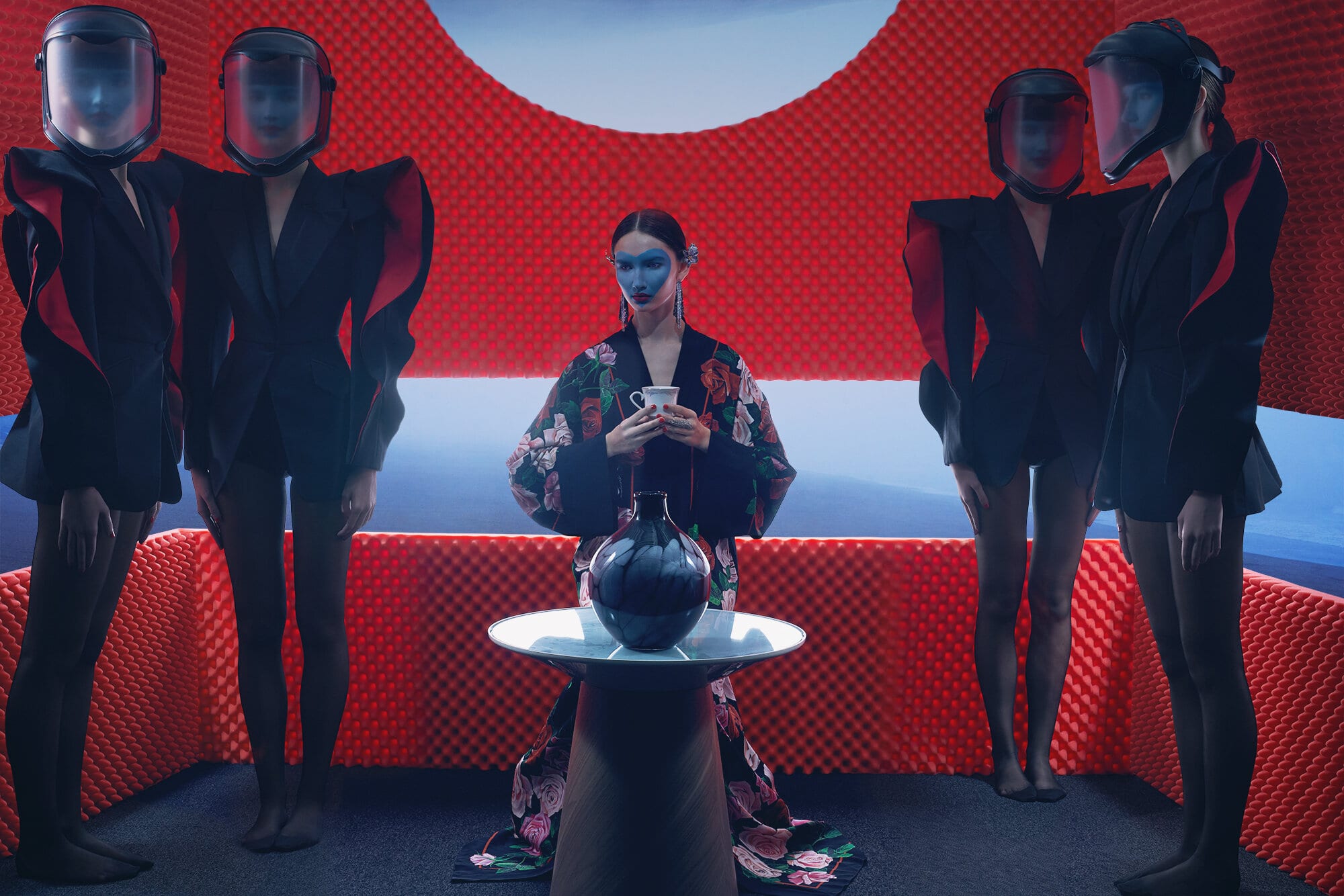
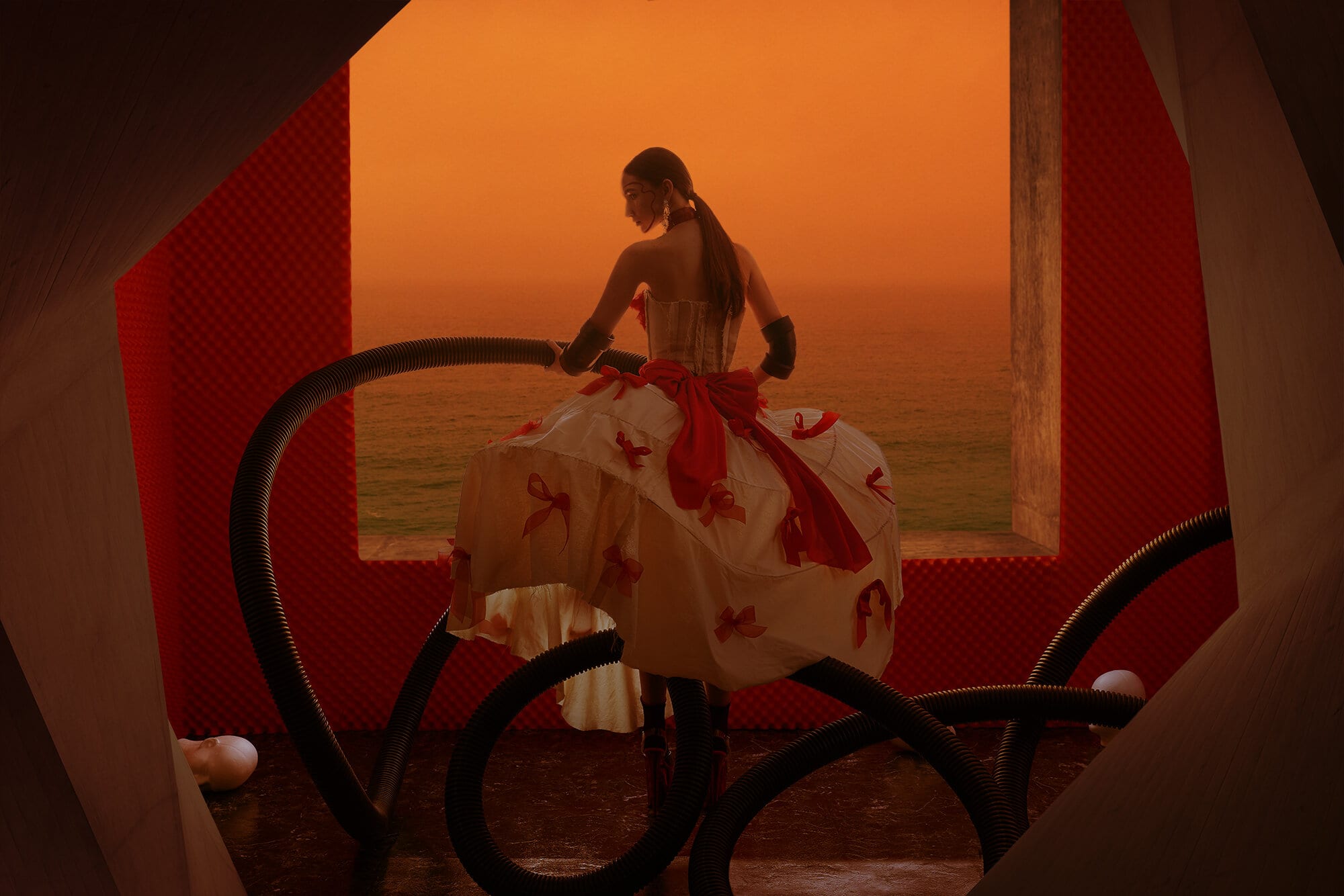
“Commissioners were smart to take advantage of this honest kind of image-making; it was a revolution that needed to happen, in terms of bringing people back down to earth. But I do think that it will pass. People will start to get bored of it”
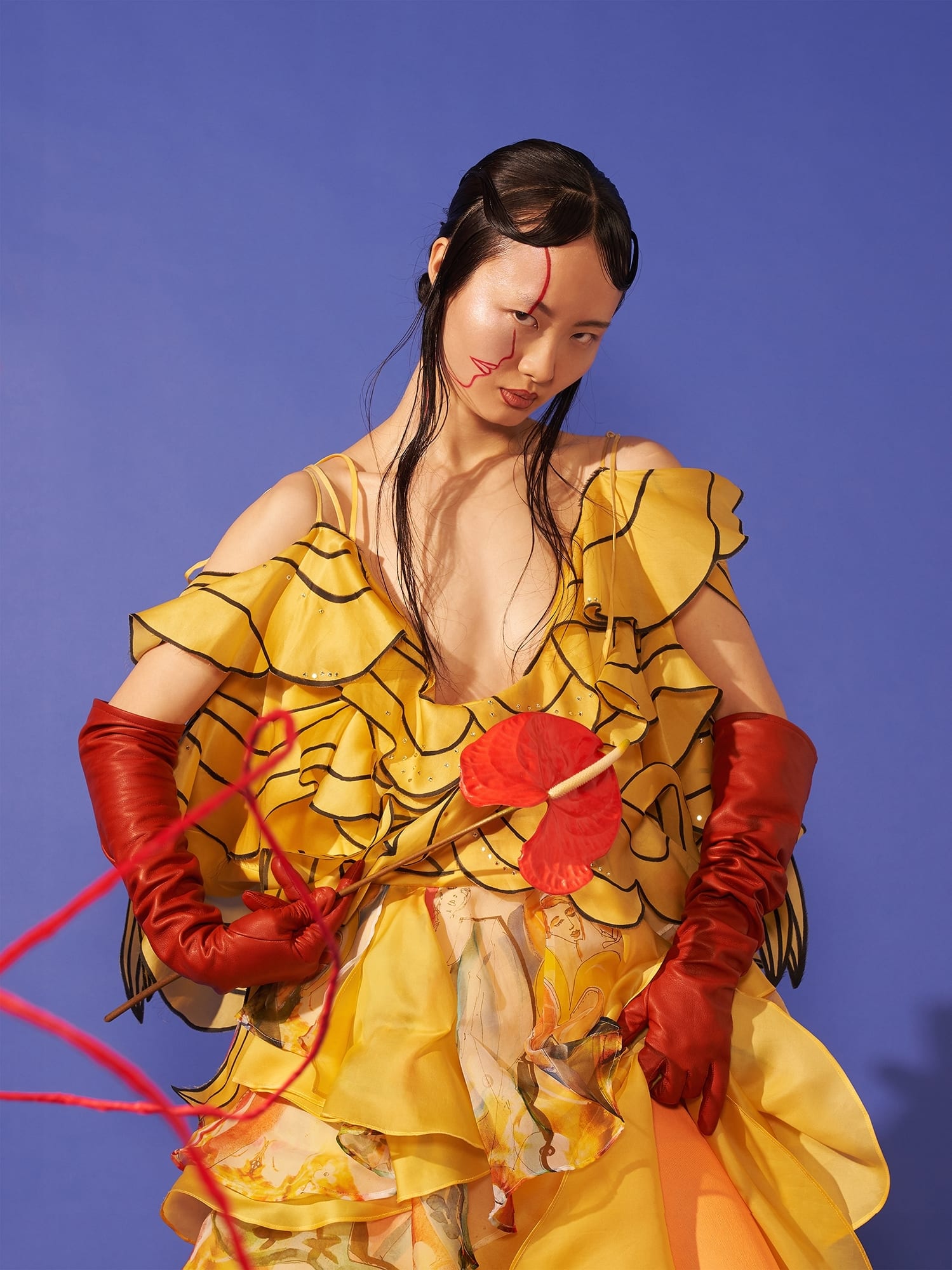
Watt has gone through periods of feeling the need to assimilate; to shape her style around the demands of the market, and not the other way around. “It just felt like I was trying to be someone else,” she says. “It also made my work look like everyone else’s, which I don’t think is a good commercial tactic.” Because, she explains, the industry operates in cycles: “If I only shoot what’s on trend now, my career will be over in five years. But I’m playing a long-game here. Commissioners were smart to take advantage of this honest kind of image-making; it was a revolution that needed to happen, in terms of bringing people back down to earth. But I do think that it will pass. People will start to get bored of it.”
As a Chinese immigrant, much of Watt’s personal work speaks subtly to past trauma, probing notions of freedom and restriction in regards to her cultural and sexual identity. She is wary of the commercial market co-opting the plights of marginalised people. “On the one hand, it’s allowing people who haven’t had voices to come out from the shadows,” she muses. “But the more I look at it the more I feel this moral dilemma, because it feels like I’m selling my struggle. And it feels like other people are selling their struggles. And it doesn’t feel nice. Because ultimately, it’s never really about the struggle. It’s about the product.”
“And then commissioners and execs end up having this responsibility,” she continues, “where there’s a competition of struggles; whose struggle are you going to highlight today, or next month? And when you stop talking about it, does it go away? Does that mean it’s not important anymore?” A critical lens does beg the question, did brands and businesses care about women before #MeToo? Do they still care, now the hashtag isn’t trending? Did they care about racism before Black Lives Matter took centre stage — and will they still care three years from now? “It can feel like they’re looking for the novelty aspect,” says Watt, “like, ‘ok, we’ve done that oppression story, now let’s move on and find something else.’”
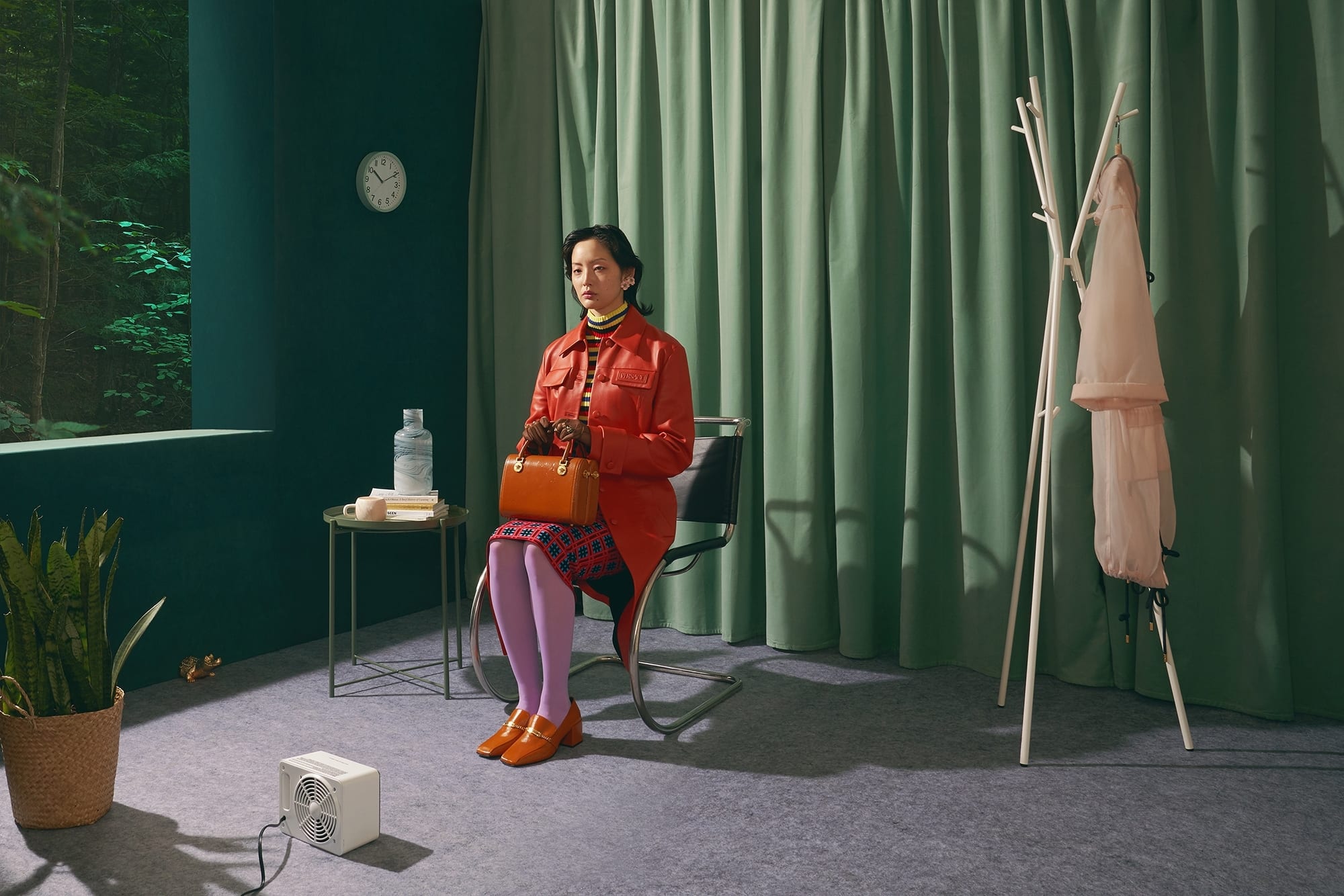
Watt isn’t naive. She knows how capitalism works, and she’s not unwilling to partake in it — but she advocates for remaining cautious and critical. And ultimately, two things can be true at the same time: the rise in social issue campaigns may well be problematic on some levels, or fraught with certain shortcomings. But it can also be a step in the right direction, helping to create the conditions for a better future — where once marginalised identities become so mainstream and normalised, for example, that the very concept of tokenism becomes redundant. In Watt’s words, “it may not be the most elegant method of change, but at least it is some mode of change.”
So, what advice does she have for photographers wanting to play the game without losing themselves? Without becoming jaded or disillusioned? First and foremost, keep honing your voice, regardless of whether you’re being paid for it; keep making personal work, keep refining your portfolio for the jobs you want. And don’t succumb to pressure to be like everybody else. Because the tide will turn, and you could be ahead of the curve. As we wait for the industry to recover, use this time to review your website and your public profiles — Instagram, Behance and beyond — and ask yourself, am I pushing a solid and consistent style? Do I stick out in my own light? Are there conflicting projects that could be removed? Lastly, if you are taking a job that doesn’t align (never something to be ashamed of, particularly in this climate), “I’d always give them what they want,” Watt says, “but I’d always make something for myself too. And sometimes they’ll select it and sometimes they won’t. But at least you’re cracking the door open for them.”
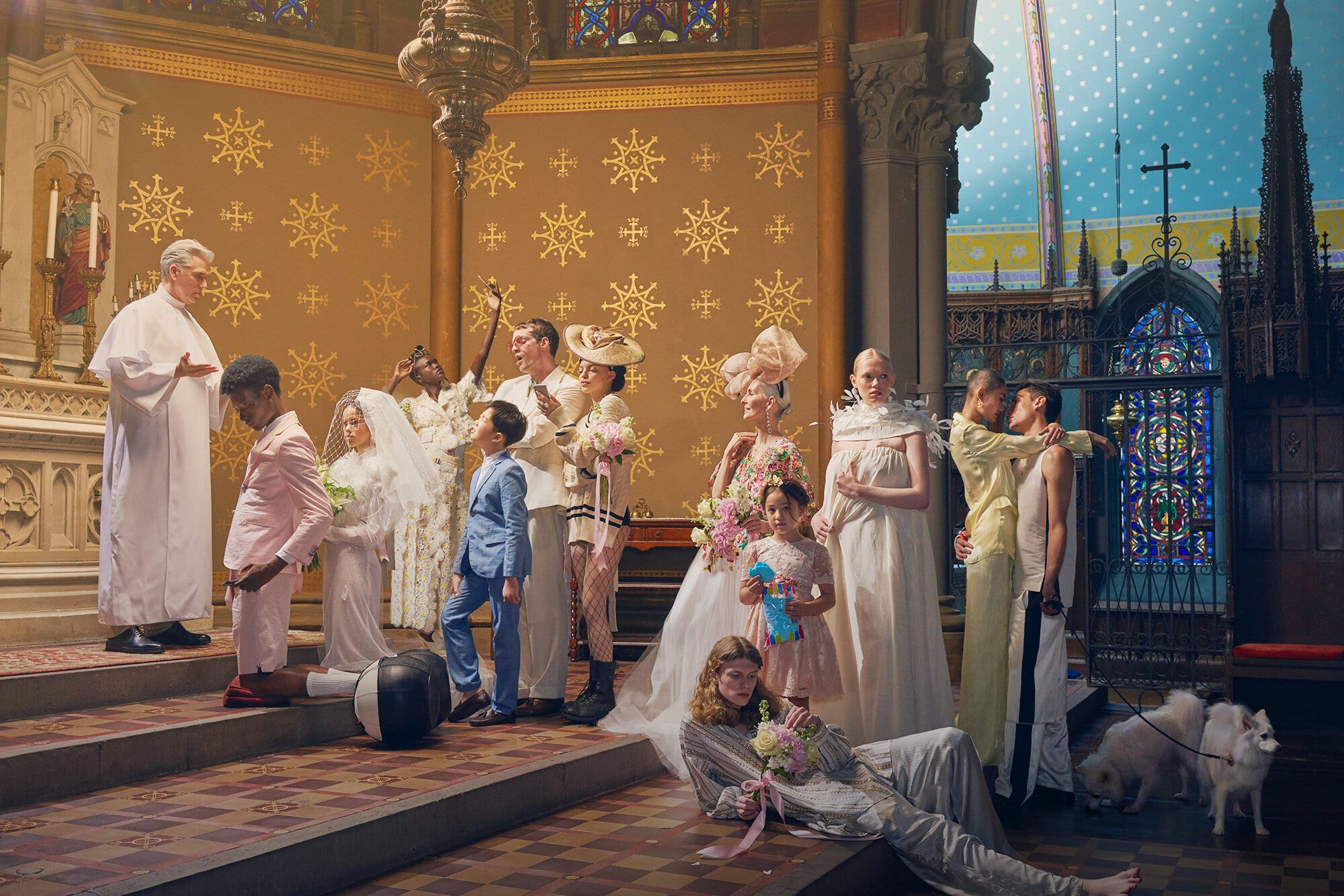
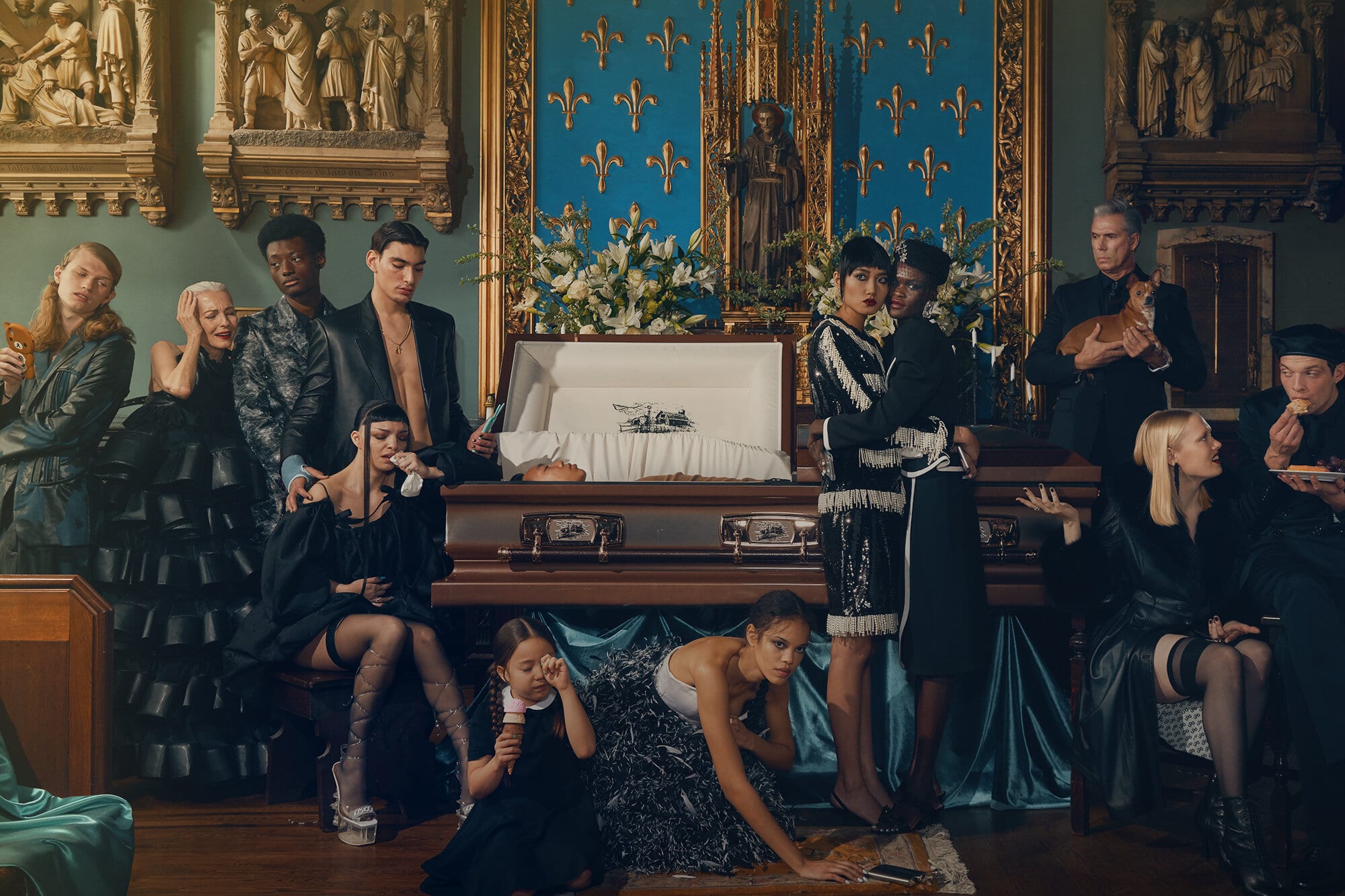
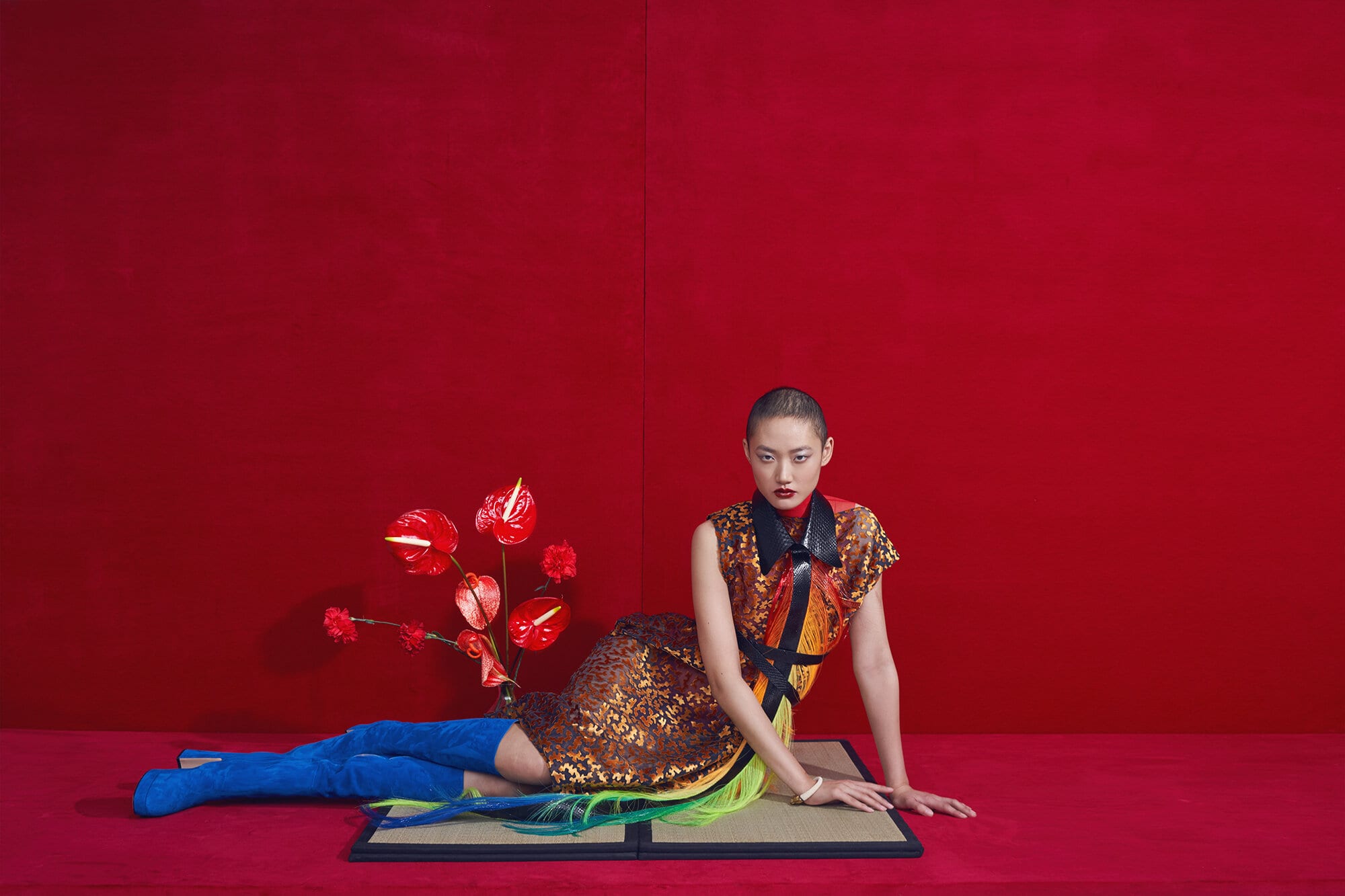
Client-side, Watt maintains there are worlds of untapped potential in brands’ output, and that consumers will soon become fatigued by homogenous imagery flooding the market. As the pandemic poses an opportunity for a kind of cultural reset, the photographer hopes for more play, and more fantasy (which can still be a means of exploring socio-political narratives, she adds — ”just in a way that’s not so direct”). In a perverse continuation of Covid-19 adaptation measures, Watt is gunning for more digital: campaigns that take advantage of 3D rendering or interactive experiences, such as New York-based fashion label Collina Strada’s 2020 Video Game campaign for GucciFest.
“I had a friend who mentioned that we went through such a tumultuous four years, in the US at least, that people needed that sort of gentle, earnest imagery from before,” she says. “But hopefully now [after President Joe Biden’s inauguration] things will stabilise in a certain way — and when they do, it will create space for people to play. Space for people to explore alter egos, create alternate worlds, and realise dreams beyond the realm of realism… Which ultimately reveals more parts of ourselves, whether it’s other identities or ways of beings or value systems. The more we expand ourselves, the more we can understand each other.”
Find out more about Direct Digital here.
